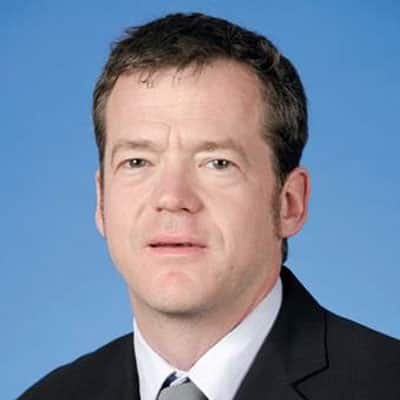Customer Logins
Obtain the data you need to make the most informed decisions by accessing our extensive portfolio of information, analytics, and expertise. Sign in to the product or service center of your choice.
Customer Logins
BLOG
May 08, 2023
Resource nationalism in West Africa
An intent to take greater control over natural resources and promote local processing is evident across Côte d'Ivoire, Guinea, Mali and Senegal, driven by political instability, inflation and increased global demand for resources such as cocoa, oil and gas, bauxite and gold.
Although further policy and contract changes are probable, they are unlikely to be as sweeping as proposed by the countries' governments, with some of the most extreme rhetoric favoring resource nationalism seemingly designed to gain support from local populations, particularly for contested interim governments.
Stricter local content provisions, demands for increased state shares of revenue, higher taxes and requirements that companies commit to greater local processing of resources are still likely in the one- to three-year outlook in all four countries.
Different factors are driving resource nationalism - seeking to extract more domestically generated value from locally produced resources - in the four countries. Common risk indicators include political instability, inflation and rising global demand for the commodities they produce.
Guinea and Mali
In Guinea and Mali, the greater resource nationalism reflects coups that have brought to power strongly nationalistic leaders, seeking greater domestic sovereignty and reduced influence of former colonial powers, particularly France. This attitude has proved strikingly popular when a region historically largely under French control - including the four countries under review - is showing strong anti-French sentiments.
For Guinea and Mali's military leaders, their nationalistic outlook is encouraged further by periodic sanctions reflecting their resistance to calls from regional organization the Economic Community of West African States (ECOWAS) to accelerate transitional arrangements. The interim nature of their governments and ongoing suspension from ECOWAS have largely precluded most cooperation or support from multilateral and bilateral partners, further encouraging them to seek greater revenue capture from their resource sectors.
This nationalist trajectory makes the renegotiation of contracts governing natural resources a logical next step to reinforce interim leaders, with neither President Mamady Doumbouya in Guinea nor fellow colonel President Assimi Goita in Mali, due to step down for over 12 months, even if transitional agreements are followed.
Senegal and Côte d'Ivoire
Even in Senegal, trends towards resource nationalism are being fostered by political instability ahead of the presidential election due in February 2024. Senegalese main opposition candidate Ousmane Sonko, who faces legal obstacles to his candidacy, has built his campaign on a strongly nationalistic outlook, promising contract revisions and greater government control over the nascent oil and gas industry, which is due to begin its first production by the end of 2023. Senegalese President Macky Sall, who has not yet confirmed whether he will stand for a third term (which the opposition deems unconstitutional), thus faces pressure to enact more-stringent local-content legislation than international oil company partners believe is appropriate for an emerging producer. This includes a pledge to have 50% local content throughout the hydrocarbons sector by 2030, under legislation that parliament is likely to pass before the presidential election.
In Côte d'Ivoire, economic factors rather than the political situation are driving a renewed focus on efforts to secure a greater domestic revenue share of the cocoa market. Alassane Ouattara, president since 2010, has called repeatedly for more local processing to insulate Côte d'Ivoire from the impact of volatile cocoa prices by creating more jobs less dependent on primary production. This initiative is given greater urgency by rising inflation levels following the Russian invasion of Ukraine, which forced the government to introduce price caps on selected goods in March 2022, draining fiscal revenues. The same issue has affected Guinea, Mali and Senegal, prompting a greater focus on maintaining state capacity to afford subsidies by taking a larger share of revenues from locally produced primary resources.
Increased global demand for natural resources has also promoted a more assertive approach. Guinea is the world's second-largest producer of aluminum-ore bauxite, for which there has been consistently strong demand led by the construction industry in China. Mali is a major gold producer and one of the world's largest suppliers of lithium, essential for the batteries needed for solar power generation and electric cars. Senegal has made some of the largest discoveries of gas in recent years, including in the giant Greater Tortue Ahmeyim field straddling the maritime border with Mauritania. European Union nations have shown particular interest in signing supply contracts with Senegal to offset Russia's exclusion from its energy market.
What we're watching:
- If Cameroon and Nigeria finalized their membership of the Sustainable Cocoa Initiative, this would give the Côte d'Ivoire-led group greater leverage to demand higher premiums from cocoa exporters.
- Enforced cessation of activities at Guinean bauxite or gold mines other than Simandou would indicate a renewed intent by transitional authorities to enforce more stringent adherence to local content regulations.
- Further delays in organizing Malian elections would increase the risk of sanctions and the reliance of the junta on the mining industry for revenue, increasing the probability of tax increases, contract revisions and enforced gold sales.
- Victory for Sonko in the Senegalese presidential election would increase the probability of renegotiation of the country's largest oil and gas contracts.
This article was published by S&P Global Market Intelligence and not by S&P Global Ratings, which is a separately managed division of S&P Global.
{"items" : [
{"name":"share","enabled":true,"desc":"<strong>Share</strong>","mobdesc":"Share","options":[ {"name":"facebook","url":"https://www.facebook.com/sharer.php?u=http%3a%2f%2fstage.www.spglobal.com%2fmarketintelligence%2fen%2fmi%2fresearch-analysis%2fresource-nationalism-in-west-africa.html","enabled":true},{"name":"twitter","url":"https://twitter.com/intent/tweet?url=http%3a%2f%2fstage.www.spglobal.com%2fmarketintelligence%2fen%2fmi%2fresearch-analysis%2fresource-nationalism-in-west-africa.html&text=Resource+nationalism+in+West+Africa+%7c+S%26P+Global+","enabled":true},{"name":"linkedin","url":"https://www.linkedin.com/sharing/share-offsite/?url=http%3a%2f%2fstage.www.spglobal.com%2fmarketintelligence%2fen%2fmi%2fresearch-analysis%2fresource-nationalism-in-west-africa.html","enabled":true},{"name":"email","url":"?subject=Resource nationalism in West Africa | S&P Global &body=http%3a%2f%2fstage.www.spglobal.com%2fmarketintelligence%2fen%2fmi%2fresearch-analysis%2fresource-nationalism-in-west-africa.html","enabled":true},{"name":"whatsapp","url":"https://api.whatsapp.com/send?text=Resource+nationalism+in+West+Africa+%7c+S%26P+Global+ http%3a%2f%2fstage.www.spglobal.com%2fmarketintelligence%2fen%2fmi%2fresearch-analysis%2fresource-nationalism-in-west-africa.html","enabled":true}]}, {"name":"rtt","enabled":true,"mobdesc":"Top"}
]}





